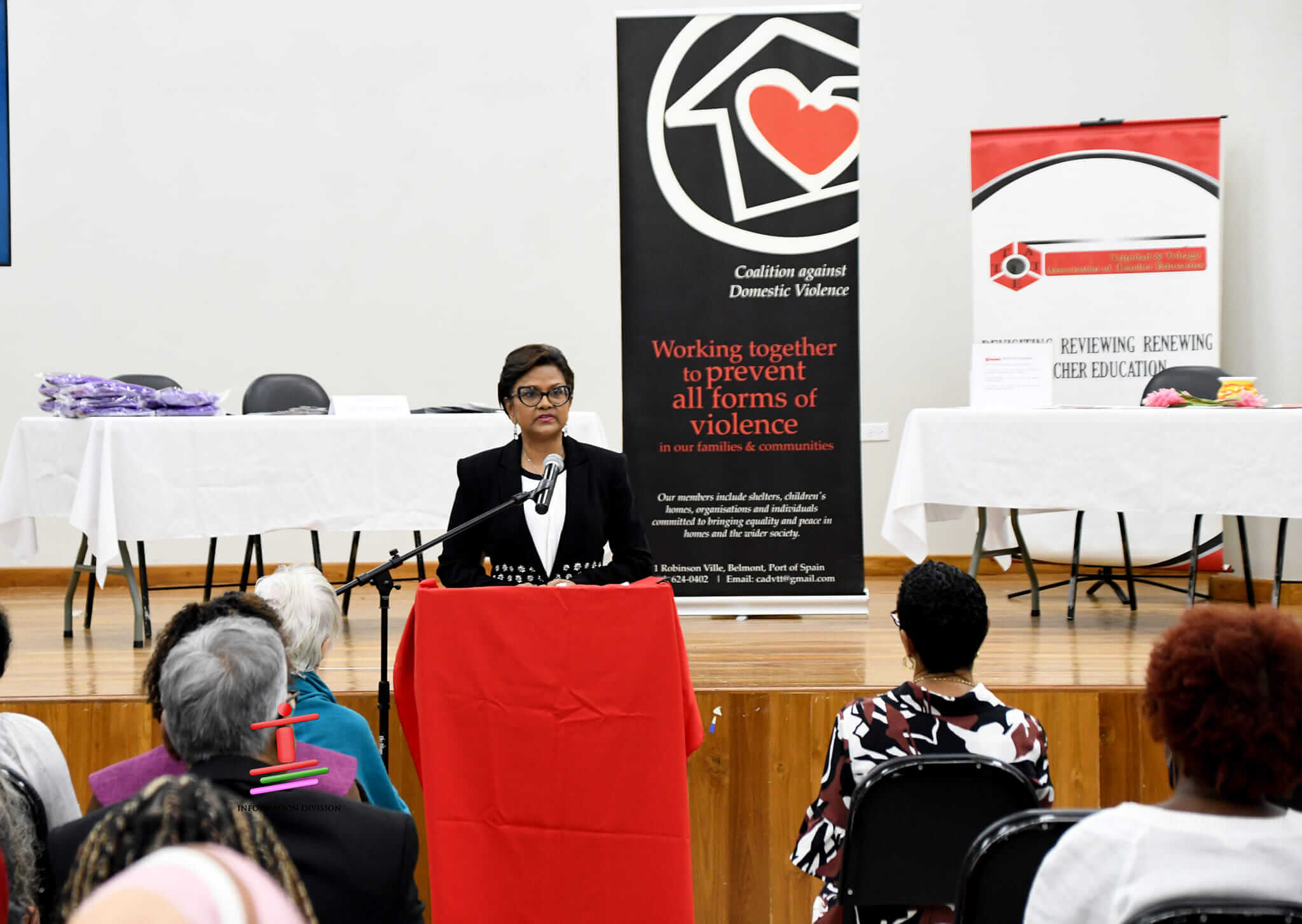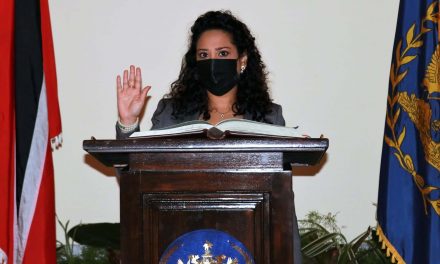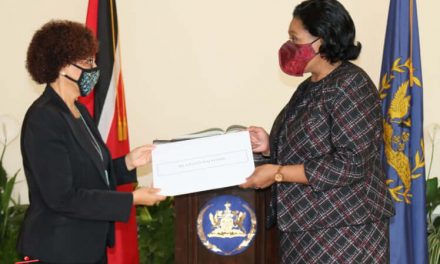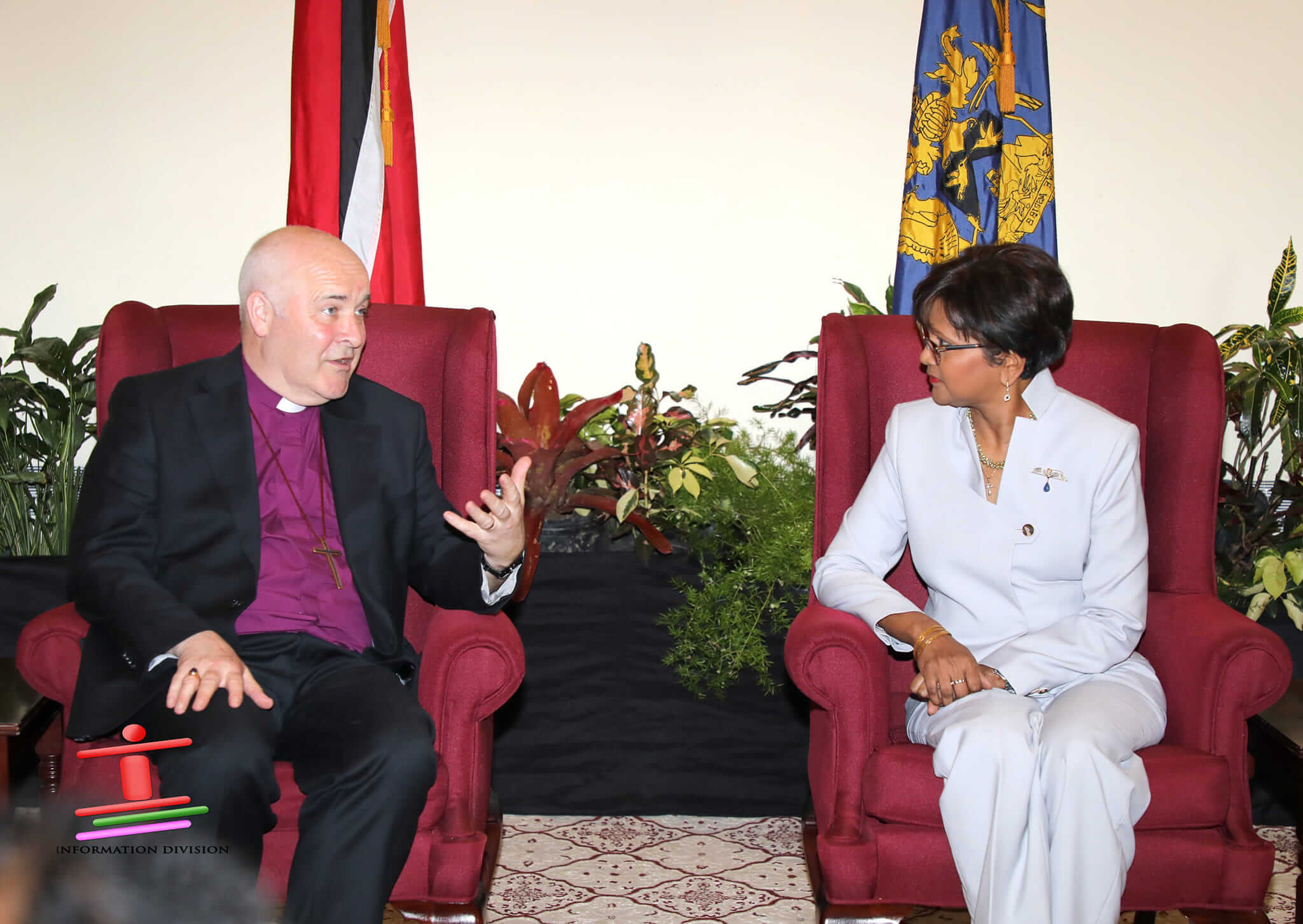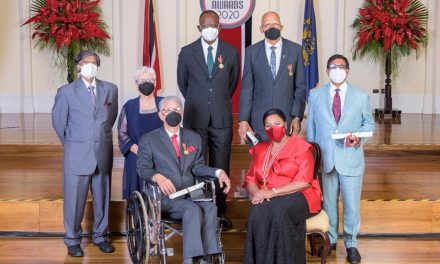As I address you this evening, I am a mix of different feelings.
First, I am filled with awe at the incredibly significant work the Coalition does, day in and day out, intervening in the lives of persons who are affected by domestic violence and raising awareness of their plight. The Coalition’s work in uniting individuals and organisations working to combat domestic and other forms of gender-based violence; advocating for the protection of the rights of the vulnerable members of society including women and girls; promoting consultations, collaborations and meetings with NGOs and CBOs; creating strategic alliances and partnerships; and providing support and guidance to survivors of domestic violence, is nothing short of inspirational. It serves as a model to all civic-society groups on how, not just to organize, but how to effectively execute programmes that reach and impact target groups.
Second, I am filled with a deep regret at the fact that there is still so much work for the Coalition to do, given the prevalence of domestic violence in our country. Would it not be wonderful if this were the last annual general meeting of the Coalition? If, by some miracle, your efforts to eliminate all forms of domestic violence were to succeed? If your mission to ensure that children, women, and men in Trinidad and Tobago live in an environment free from physical, emotional, sexual, and psychological violence were accomplished? The recent rise in cases of domestic violence during the COVID Pandemic and the deeply entrenched power-imbalances that continue to characterise domestic relationships all over the world, mean, however, that the Coalition’s work will not soon be over. For, as long as man’s inhumanity to man continues, there will forever be a need for organisations like the Coalition.
My deep regret over this fact is, however, tempered by another emotion which I feel this evening – and that emotion is hope.
Although our country is regrettably a significant distance away from eliminating all forms of domestic violence, the Coalition’s commitment, advocacy, education, research, outreach and support have certainly brought us nearer to doing so. Since its inception in 1988, the domestic-violence shelters, children’s homes and organisations and individuals that the Coalition has put together and in touch with each other, have made use of the extensive knowledge, expertise and experience of the Coalition’s membership, and have improved and literally saved the lives of thousands of people affected by domestic violence. As I have said, the Coalition’s work in these and other regards, has filled me with awe. And more than this, the Coalition’s work fills me with hope for a better tomorrow.
For my own part, I commit my Office to joining in the Coalition’s advocacy against all forms of domestic violence. There are at least two respects in which my Office has already begun to do so. The first is in seeking to disrupt the developmental pathways towards intimate-partner violence, by advocating for preventative- intervention strategies such as the involvement of young people in the arts, and in music and in reading, all of these being initiatives to which the Office of the President is committed. I commit to continuing the work of the Office in this regard, and to working closely with organizations like the Coalition to advocate for and promote additional initiatives like early-childhood home visitation; preschool enrichment with family engagement; parenting skill and family relationship programmes and programmes that offer treatment for at-risk children, youth and families.
The second respect in which the Office of the President has begun its advocacy against all forms of domestic violence, is in engaging influential adults and peers to join in the fight against it. In this sphere, the Office of the President is committed to advocating for men and boys to be allies in domestic violence prevention; and for bystander empowerment and education. Insofar as concerns advocating for men and boys to be allies in domestic violence prevention, my husband has assured me of his commitment to participating in this effort personally, and in supporting my advocacy for the teaching of safe and healthy relationship skills among men and boys. He has accepted the kind invitation issued to him by ‘Rainbow Rescue’ to be its patron, and he remains ready and willing to advocate for men and boys to do better in their relationships. It was my husband who, with distress written all over his features, showed me in our living room a copy of last Friday’s article at page 7 of the Daily Express Newspaper titled “Come on men, protect our children”, which reported on the fact that 85% of the alleged perpetrators of child abuse for the period January 1 to July 15, 2023, have been male, and over 80% of the victims were female. The Office of the President is committed to all forms of intervention in relation to the behaviours of men and boys which can lead them into healthier relationships with themselves, and ultimately, with women and children.
The other overwhelming emotion I feel this evening is that of gratitude. I want to thank your President, Ms Roberta Clarke, for her invitation to address you as you gather for your annual general meeting, and for giving me the opportunity to interact with all of you, who have long championed this country’s efforts to end domestic violence and establish a culture of peace, tolerance, and respect for human rights. I note and regret the passing of your beloved colleague Ms Mary Moonan, who by all accounts was a devoted, compassionate, and supremely able domestic-violence prevention and child-rights advocate. I extend my sincere condolences to her family, colleagues and loved ones and I pray that her hard work and sacrifice will continue to bear fruit in the years to come.
Conversations surrounding domestic and gender-based violence have been ongoing for decades; from all indications, they will continue for decades to come. The causes and consequences of the dysfunction have been identified and ventilated; legislation enacted and improved upon; police trained and trained again; people sensitised and desensitised. There have been workshops, fora and seminars, comings-together of civil society; marches and vigils, and yet the stories and accounts of domestic violence and its tragic consequences keep repeating themselves. It is hard not to become weary, disillusioned and frustrated in the battle against domestic violence. I am grateful that the Coalition has been at the forefront of this uphill battle for so many years and has not become weary and has not given up. You have had to contend with institutional bureaucracy, entrenched social prejudices, political agendas, and funding challenges, among other woes. The Coalition’s Founder, Diana Mahabir-Wyatt, had this to say during her contribution to the Senate Debate on the Domestic Violence Bill in 1999, “I do not expect perfection in legislation, people, institutions or systems. I think that all of them are a dynamic process that we have to continually work to improve.” And that you have certainly done.
For decades, you have worked hand in hand with local civil society organisations, the private sector, the state, the Judiciary, and other NGOs to advance the cause of gender equality and advocate for an end to domestic violence. You have made invaluable recommendations and contributions to key legislation and organisational policies. The Domestic Violence Act has been amended twice to better protect victims, greatly expanding the category of persons who can seek protection. Your psycho-social support has aided not only victims of domestic violence but also perpetrators who wish to put an end to their behaviour.
These are just some of the reasons why I am so grateful for, and to, the Coalition this evening.
Your theme this evening, “Partners in Prevention”, underscores the fact that ‘ending domestic violence will require the inputs and leadership of the full range of key institutions at community and national levels’. I could not agree more. Domestic violence is everybody’s business and everyone has a role to play in breaking its vicious cycle. You are most certainly doing your part. And I pledge the support of the Office of the President, and that of my husband, to advocate for a better and a kinder and a safer tomorrow for our families.
Although there is most certainly a long way ahead of us, considerable progress has already been made. I urge you to keep the finish line in sight as you continue to advocate, raise awareness and foster a zero-tolerance culture for domestic violence. It is my sincere hope that your research and efforts will continue to shape the discourse and set the pace and tone for domestic violence prevention nationally and regionally for years to come, until our goal has been attained. I leave you with the words of cultural anthropologist, Margaret Mead, “never doubt that a small group of thoughtful committed citizens can change the world. Indeed, it is the only thing that ever has.”
Thank you.

